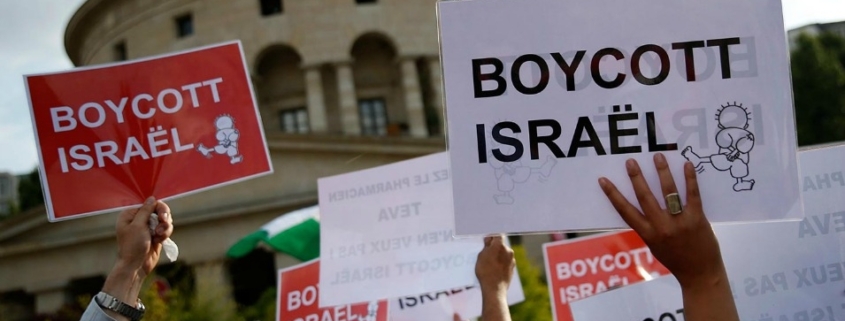Declaring Cyber War: BDS and the Online Fight Against Israel
Dr. Gary McGraw, CTO of Cigital, Inc. describes cyber war in his article Cyber War is Inevitable as having “a consequential impact in the physical world.” To-date, in a military sense, this kinetic effect has not occurred. However, economically and publically, the Boycott, Divestment, and Sanctions (BDS) Movement has effectively placed a burden on Israel and its economy, though the extent of this could be debated.
The BDS strategy to gain awareness and sympathy for their cause is simple: recruit the world policy-makers and academics of and those who influence them. A recent Anti-Defamation League (ADL) report on BDS activity on American college campuses found that “In Fall 2015, over 150 explicitly anti-Israel events have taken place, up from 105 events that occurred during the same period in 2014.” In response to these findings, the ADL launched their @CampusADL social media campaign to counter the successful #BDS initiative that garnered the support of college students not only in America but worldwide, an effort that can be credited with much of the acquired support for BDS.
The influence of the BDS movement does not stop at the college campus. Its message permeates the daily lives of the average impressionable student by the use of social media. Facebook CEO Mark Zuckerberg has said that “the average U.S. consumer spends 40 minutes on Facebook per day.” That average is expected to be greater for college students. Not only does BDS do this through their own personal account, but also via major pop culture figures it has manipulated to convey their message on social media, for everyone to see.
For example, musician turned BDS poster-boy Roger Waters has nearly two million followers on Facebook. His frequent posts reciting BDS- influenced anti-Israel and anti-Semitic discourse are easily accessible for the world to see. Along with Waters, the BDS movement states that “Lauryn Hill joined thousands of artists in Canada, Ireland, South Africa, the UK, the US and elsewhere who now support BDS or refrain from performing in Israel.” This is a clear example of the techniques used by BDS to gain support, using famous people and their pull over their impressionable, wide fan base that can be easily “preached” to through social media.
While the BDS movement appears to be picking up speed of late , the movement against it has kept pace alongside it. Dr. McGraw wrote that “when defenses are equal or even superior to offensive forces, actors have less incentive to strike first, because the advantage of doing so is far lower.” As long as initiatives such as the @CampusADL, and others such as #BDSFail continue to wage successful defense campaigns, the influence of BDS could be contained.
http://www.businessinsider.com/how-much-time-people-spend-on-facebook-per-day-2015-7
https://www.facebook.com/notes/roger-waters/a-note-from-roger-february-7-2015/1033898173291299/

